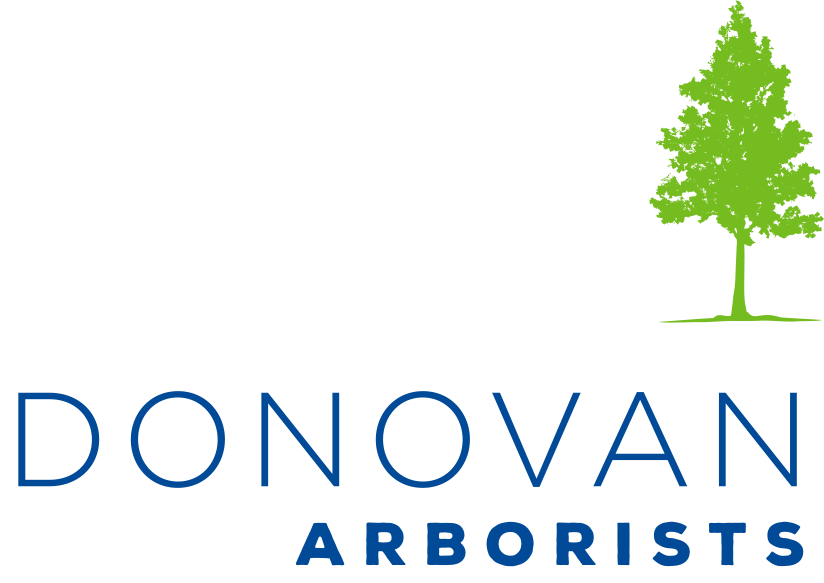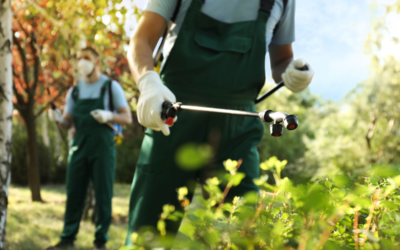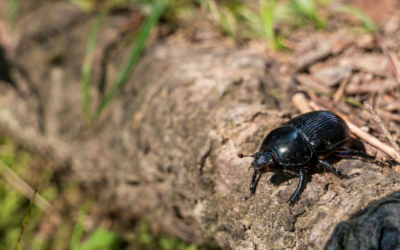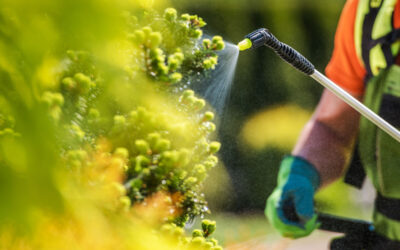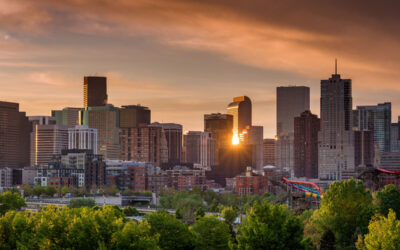Healthy soil not only benefits turf and plant growth, it saves water, too! It works so well, in fact, that Denver Water requires that any landscaping of new construction must conform to its standards for soil amendments in order to conserve water in the areas it serves. And while these requirements don’t apply to existing landscaping, if you’re planning to re-sod a lawn or just getting your existing beds ready for spring planting, you’ll do well to incorporate their guidelines into your project.
Add Compost to Soil for Healthy Lawn and Plant Growth
Denver-area soils have a lot of clay, and that prevents them from absorbing and retaining moisture. By adding organic soil amendments, the clay is broken up and holds nutrients and water for healthy plant growth. Denver Water recommends tilling organic compost into the soil to a depth of six inches at the rate of 4 cubic yards per 1,000 square feet of landscaping area. For most plants, that equates to 1 to 2 inches of compost over the area to be tilled.
How Much Compost to Add
If your flower and vegetable beds are already established, dig up some soil and give it a look. Light-colored soil doesn’t have as much organic matter as dark brown or black soil. If your soil looks light, add 4-6 inches of compost before planting. Even rich soils need 1-3 inches of compost to renew them for the next season’s growth.
Use Top Quality Compost for Best Results and Water Retention
You also can use compost as a top dressing on existing lawns. Well-composted lawns can reduce water needs by as much as 25 percent. You can make your own compost from leaves, grass clippings, vegetable waste, and coffee grounds, but if you have a large area to treat, chances are you’ll need to find a reliable source for stable, organic compost. Buy good quality compost that will not burn your lawn or planting beds. Compost is classified based on its chemical and physical components; Class I and II composts are recommended for best results. Denver Water has a list of local sources for Class I and II compost on their website.
Environmentally-Friendly Arborist Services for Your Landscape
Donovan Arborists is committed to maintaining and protecting Colorado’s natural beauty and health by being good stewards of the environment. For each landscaping project, we use environmentally-friendly practices and a holistic approach, focusing on the providing the optimal outdoor environments for your plants to thrive.
If you need work on any part of your landscape, new or established, Donovan Arborists offers planting, pruning, and shearing and insect and disease management services in the Denver area. We’re happy to give free estimates to homeowners and property managers for any services you may need. Call today at 303-623-8733!
